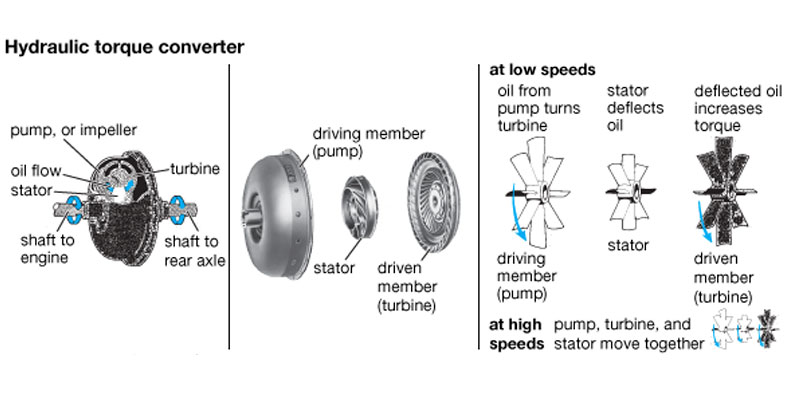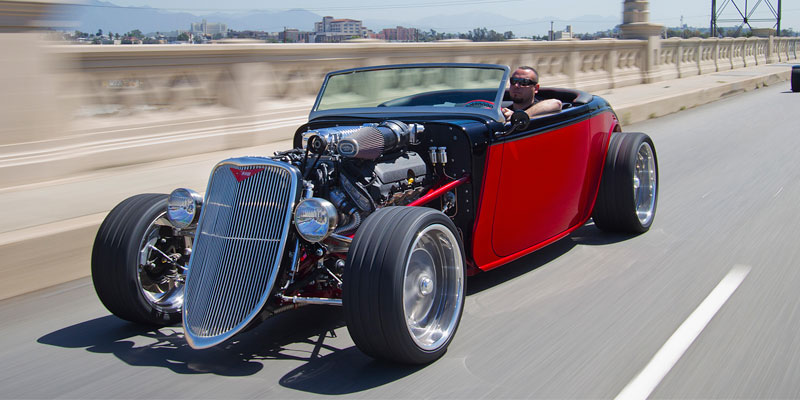There are several hot-button issues in hot rod culture that make clear divides among the ranks. Chevy or Ford, LS or small block, small block or big block, carburetor or EFI, turbo or supercharger, automatic or manual. There may be some enthusiasts who don’t have a specific favorite, but for the vast majority, the choices are clear-cut and unwavering. When it comes down to the automatic vs. manual transmission debate, a lot of folks lean to what they know they can work on, and the manual will win almost every time. Automatic transmissions are one of the most misunderstood types of transmissions. Even if you’ve decided which transmission will be best for your project, you may still be left wondering how to pick out a torque converter to go with it. Luckily, there are a lot of really great transmission builders out there who understand how to put together a transmission and torque converter combo that will allow you to really utilize the torque your engine is making.

We meet a lot of folks each year who are fed up with their automatic because it just isn’t performing the way they want it to. Sometimes the problem is the way the transmission is built or programmed, but many issues can be traced back to the converter and an incorrect stall speed. Sure, you could go buy a converter off the shelf, stick in your car, and get it to drive, but going that route doesn’t always mean that you are getting the most performance you can get out of your engine and transmission. The torque converter stall speed is critical in maximizing your engine’s performance and how the transmission will react to your right foot. Remember, if you're using a transmission and torque converter out of one vehicle and sticking it in a different one, its performance will be completely difference. You'll find a major performance difference based on the engine size, rear gear, tire size, torque curve, camshaft grind, and weight of the vehicle. Each of those factors plays a huge role in overall performance.

"Torque converter stall" is a commonly used and misunderstood term. "Stall" is the speed at which the converter will hold the engine speed and not allow any further gain, thus the engine stalls. The RPM at which stall occurs for a specific converter is a result of peak engine torque. It is also a common misunderstanding that the same converter will not stall at the same RPM behind different engines. You may hear the terms “flash stall,” “true stall,” and “brake stall” thrown around. Each of these terms are ways to describe and try and determine what RPM the converter stalls at for a given application, and each can be different for the same converter. The optimal converter for you will have special consideration taken in the setup of the impeller, turbine, and stator to achieve the desired stall speed for a given application. While stall speed is very important, it's not the only consideration when selecting a converter. Torque multiplication and efficiency are also critically important factors for drivability. Ultimately, you want a converter that produces the right amount of stall without sacrificing performance.

Torque Converter For Sale at Bowler Transmissions
Have you ever driven a vehicle with an automatic transmission that felt like it had to get way up in the RPM range before you really felt it move? Or, have you ever driven a vehicle that felt like it was trying to push through the brakes while sitting at a stop light? Either of those conditions can be traced back to incorrect stall speed. When your torque converter is built for the engine and vehicle it is being used in, you should never feel it pull through the brakes and you should always get good response right off of idle. There are a lot of different variables that come into play when building a torque converter for a specific application, but typically with most street cars, you can get by with knowing the basics about your project. If you’re building an all-out drag racer, the dynamics of your entire car become critical and can mean the difference between winning and losing by thousandths of a second. A good converter or transmission guy will build you a set up that will work really well based on their experience and knowledge. Here at Bowler Performance, we will happily guide you through the process of selecting the perfect transmission package or just a converter if that’s all you need.


